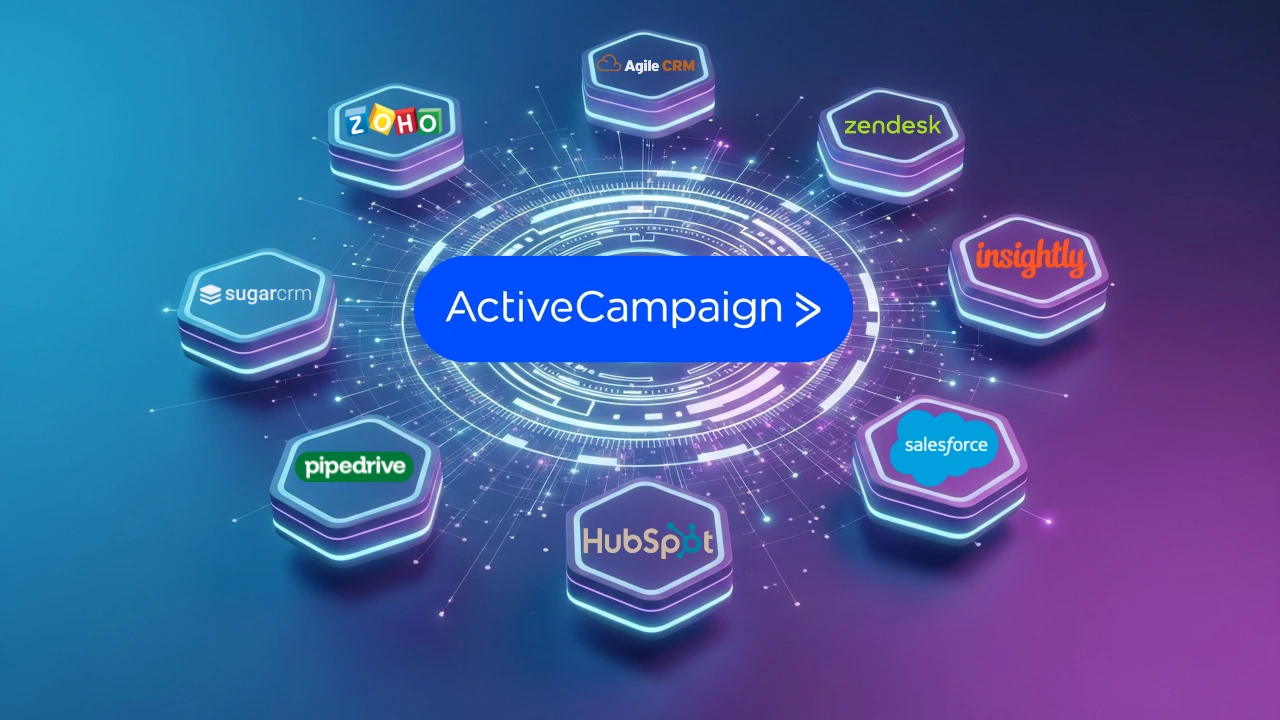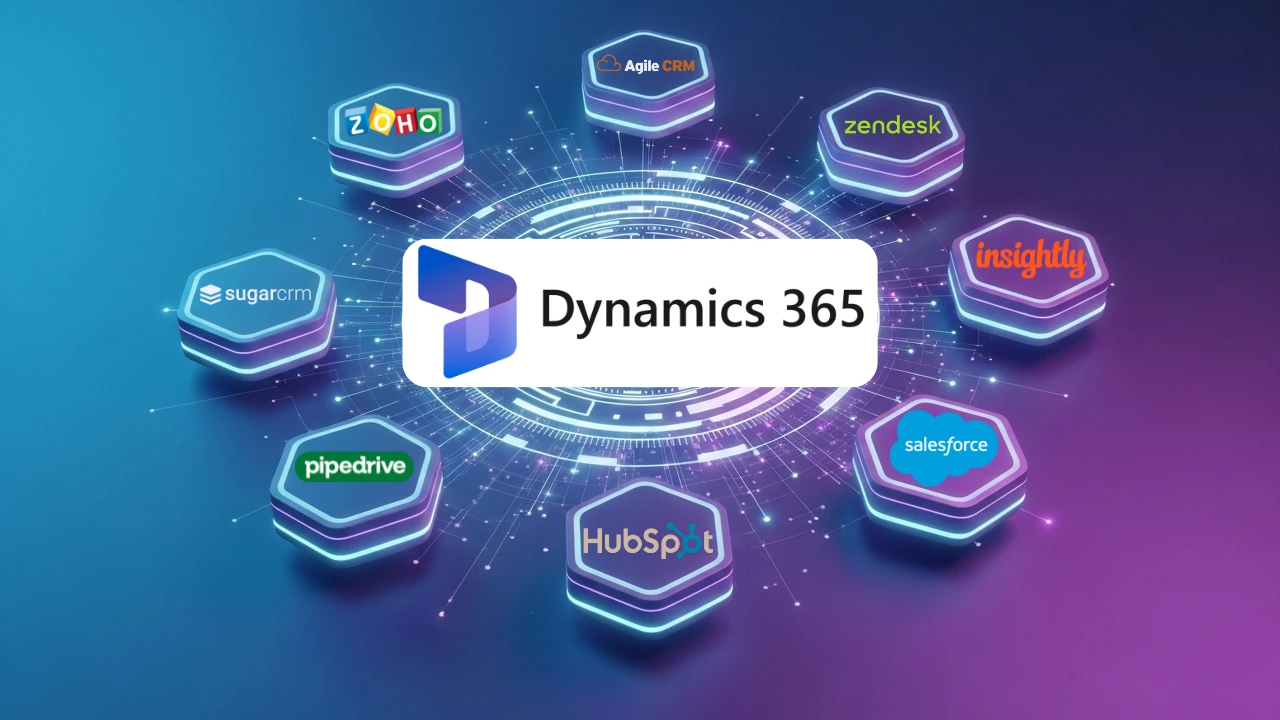•
Best Salesforce Alternatives: Expert CRM Platform Analysis
September 16, 2025
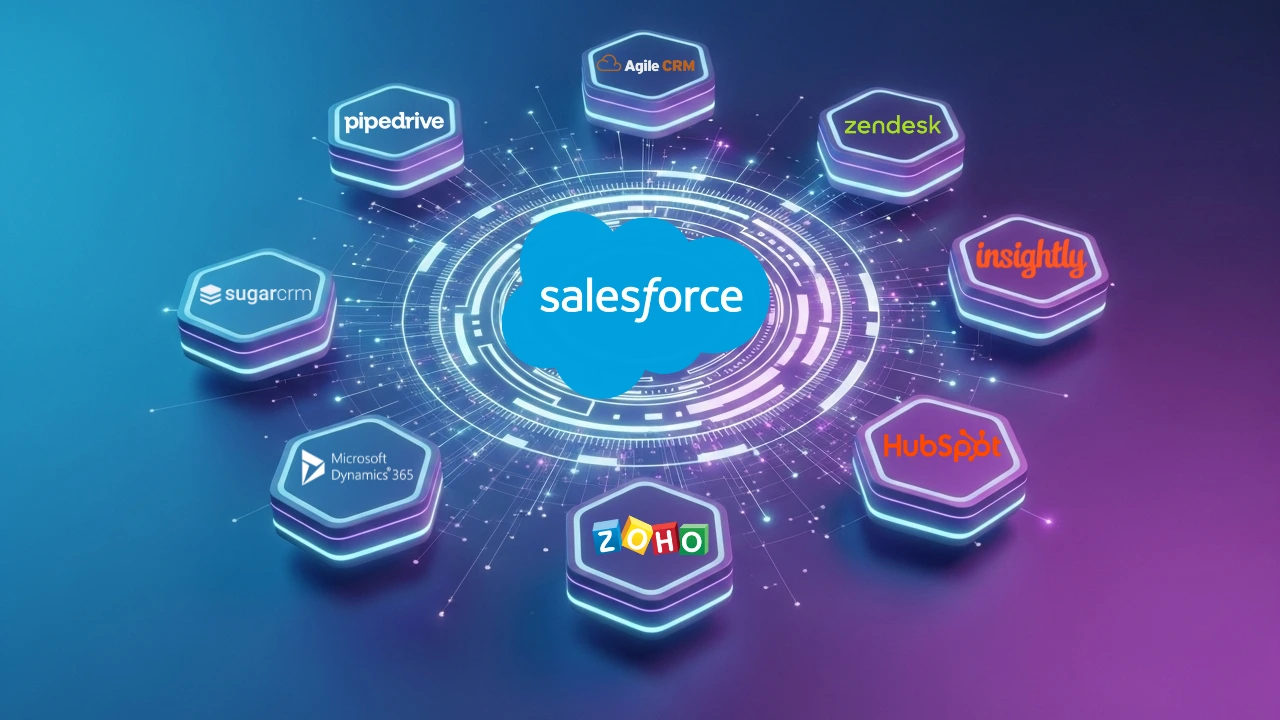
Quick Comparison Summary
HubSpot wins for growing businesses that need integrated marketing and sales in one platform with straightforward pricing. Pipedrive excels for sales-focused teams wanting visual pipeline management without complexity. Zoho CRM serves cost-conscious organizations needing extensive customization options. Microsoft Dynamics 365 works best for enterprises already invested in the Microsoft ecosystem. Still unsure? Read our detailed comparison below or contact Capital S Consulting for expert guidance.
Salesforce remains the CRM powerhouse for good reason, but many organizations find themselves reconsidering their platform choice as business needs evolve. Whether you're experiencing user adoption challenges, feeling overwhelmed by complexity, or simply outgrowing your current setup, evaluating alternatives can provide valuable perspective on your customer relationship management strategy.
The reality is that CRM needs change as companies grow. What worked for a 20-person sales team might not serve a 200-person organization, and conversely, enterprise-grade functionality can hinder rather than help smaller, agile teams. Some businesses discover they're only using a fraction of Salesforce's capabilities, while others need features that require expensive add-ons or custom development.
From our CRM implementation experience, the decision isn't always about switching platforms. Sometimes the right optimization strategy, better user training, or streamlined processes can transform an underperforming system into a competitive advantage. However, when a platform change makes strategic sense, choosing the right alternative requires understanding both your current pain points and future growth trajectory.
This analysis examines leading Salesforce alternatives through the lens of implementation complexity, feature value, scalability, and integration capabilities. Whether you're exploring options or optimizing your current approach, understanding the competitive landscape helps ensure your customer relationship management strategy supports rather than constrains your business objectives. Capital S Consulting can help evaluate your specific situation and recommend the best path forward.
Implementation Complexity
How quickly can your team achieve productivity with minimal disruption to daily sales activities? We evaluate setup requirements, data migration processes, user training needs, and the onboarding process timeline. The customer experience during implementation often determines long-term success, particularly when teams must maintain momentum while learning new systems.
Feature Value per Dollar
What customer relationship management capabilities do you gain at each pricing tier? This includes core sales automation, lead management functionality, workflow automation features, and customer service tools relative to investment. Understanding the true cost helps assess long-term value as your organization scales.
Scalability and Customization
How well does the platform adapt as your business grows? We assess customization options, user capacity, advanced automation features, and ability to handle complex customer relationships without requiring expensive upgrades or additional software investments.
Integration Ecosystem
Can the platform connect seamlessly with your existing tools for comprehensive customer service and sales operations? This covers API capabilities, pre-built no-code integrations, workflow automation across systems, and knowledge management connectivity to maintain a unified customer experience throughout your sales and support processes.
HubSpot CRM
Quick Summary: Best for marketing-sales alignment | 2-3 week implementation | Higher cost as you scale
Current Pricing: Free tier available; Starter Customer Platform $15/user per month (or $9/user per month with annual commitment); Professional plans start at base pricing plus per-seat costs; Enterprise plans require custom quotes. Pricing verified September 2025, subject to change.
HubSpot combines customer relationship management with marketing automation in a unified platform that many organizations find more intuitive than Salesforce. The visual interface makes pipeline management straightforward, while built-in email marketing and content management tools eliminate the need for separate platforms.
Key Features:
- Visual sales pipeline with drag-and-drop functionality
- Integrated email marketing and automation workflows
- Lead scoring and customer segmentation tools
- Built-in customer service ticketing system
- Comprehensive reporting dashboard for sales and marketing alignment
- Free CRM tier with basic contact and deal management
The platform excels at eliminating silos between sales and marketing teams. Lead management flows naturally from marketing campaigns through sales pipelines to customer service interactions, providing the 360-degree customer view that many Salesforce implementations struggle to achieve without extensive customization.
Our Take: HubSpot stands out for organizations wanting to consolidate their sales and marketing technology stack, particularly when rapid user adoption is critical. From our CRM implementation perspective, teams typically achieve productivity within 2-3 weeks rather than months. However, the pricing can escalate quickly as you add users and advanced features, making it potentially more expensive than Salesforce for larger organizations. For growing businesses that need integrated marketing capabilities and straightforward user adoption, HubSpot often delivers faster time-to-value than more complex alternatives.
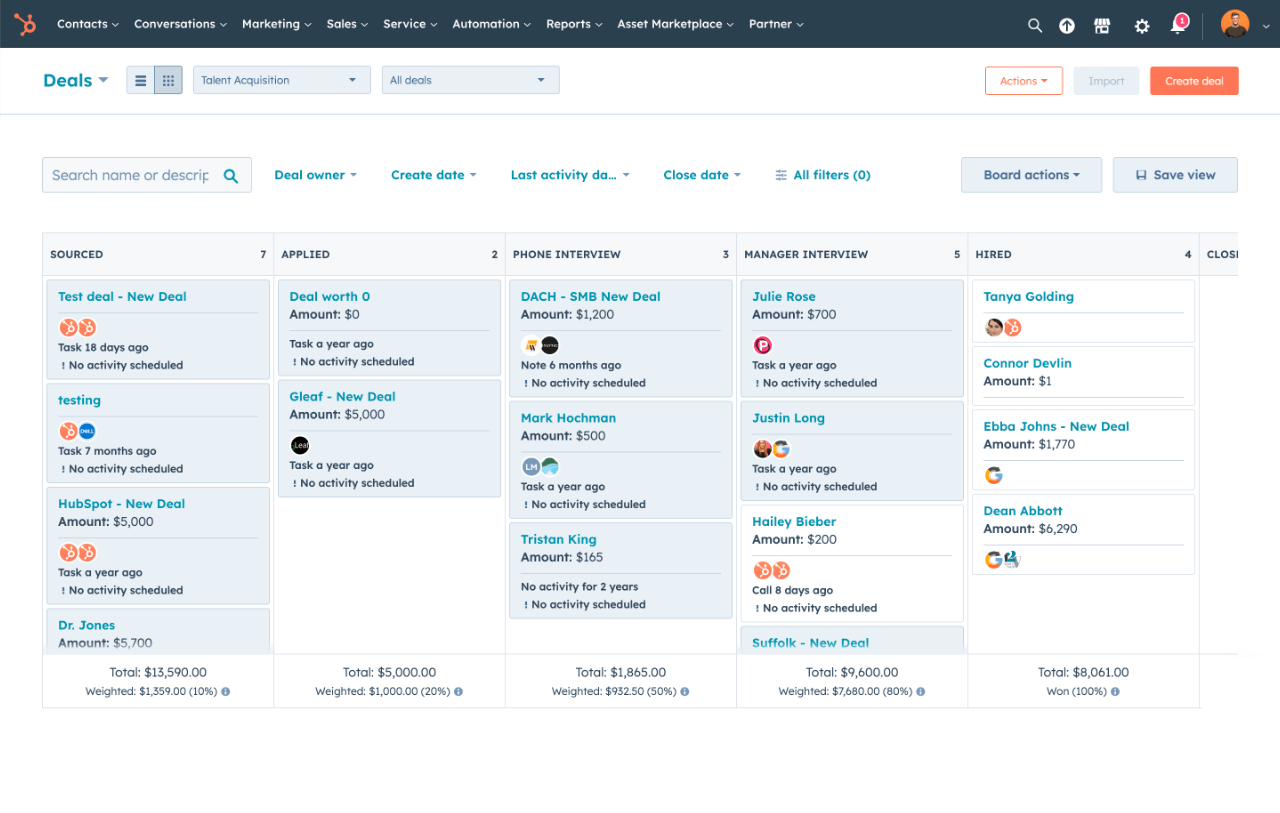
Pipedrive
Quick Summary: Best for sales-focused teams | Immediate adoption | Limited marketing features
Current Pricing: Lite $24/user per month; Growth $39/user per month; Premium $64/user per month; Ultimate $79/user per month. Annual discounts available. Pricing verified September 2025, subject to change.
Pipedrive focuses specifically on sales pipeline management with an interface designed around visual deal progression. The platform prioritizes simplicity and user adoption over comprehensive feature sets, making it particularly effective for sales-driven organizations.
Key Features:
- Visual pipeline management with customizable stages
- Activity-based selling methodology built into workflows
- Email integration with automatic activity logging
- Mobile app with full offline functionality
- Sales reporting focused on pipeline health and forecasting
- Workflow automation for routine sales tasks
The strength lies in its focused approach to sales processes. Rather than trying to be everything to everyone, Pipedrive excels at helping sales teams track deals, manage customer relationships, and automate repetitive tasks without overwhelming users with unnecessary complexity.
Our Take: Pipedrive delivers exceptional value for sales-focused organizations that prioritize user adoption and pipeline visibility over comprehensive customer relationship management features. From our implementation experience, teams typically see immediate adoption because the learning curve is minimal compared to enterprise platforms. However, organizations needing extensive marketing automation, customer service integration, or complex workflow automation will likely outgrow the platform quickly. For businesses where sales pipeline management is the primary CRM requirement, Pipedrive often provides better user engagement and faster results than more feature-heavy alternatives.
For a detailed comparison with another user-friendly alternative, see our Pipedrive vs Salesmate analysis.
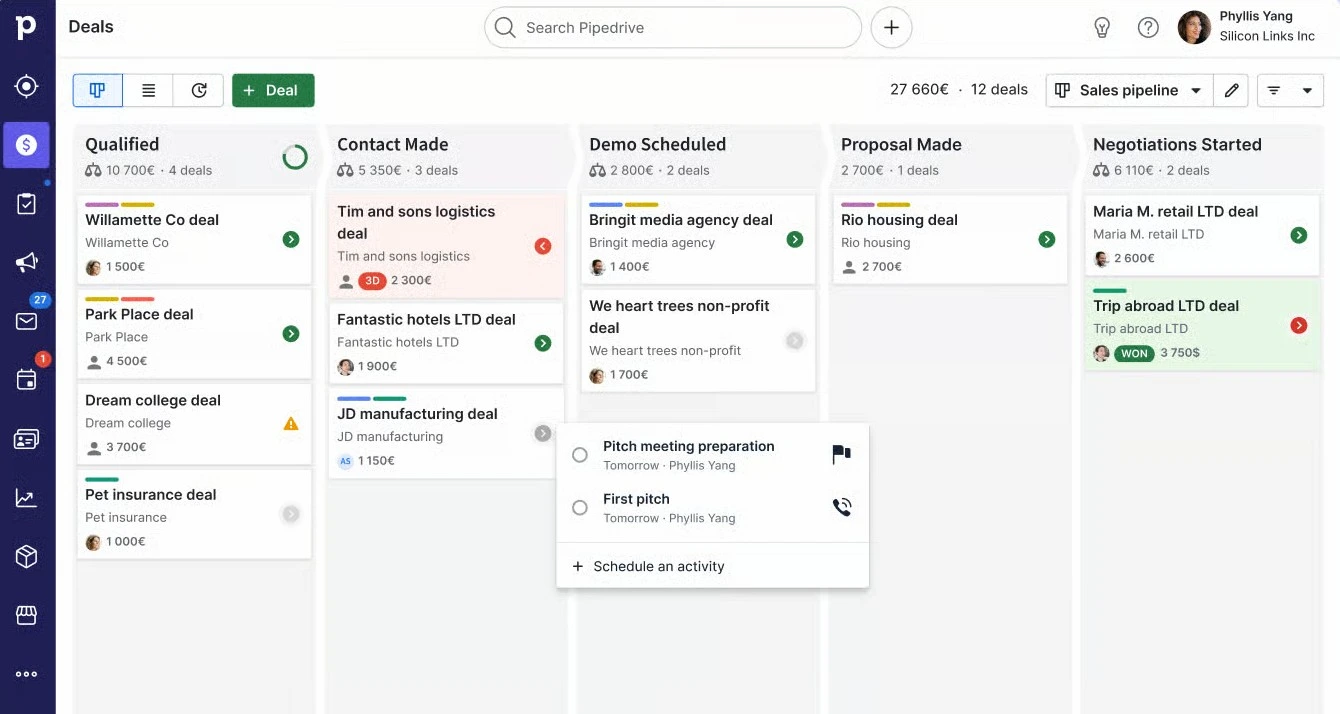
Zoho CRM
Quick Summary: Best price-to-feature ratio | Moderate learning curve | Extensive customization available
Current Pricing: Standard $14/user per month; Professional $23/user per month; Enterprise $40/user per month; Ultimate $52/user per month. Pricing verified September 2025, subject to change.
Zoho CRM offers extensive customization capabilities and comprehensive customer relationship management features at competitive pricing. As part of the broader Zoho ecosystem, it integrates seamlessly with productivity tools, accounting software, and project management applications.
Key Features:
- Highly customizable fields, modules, and workflows
- Advanced workflow automation and business process management
- AI assistant for sales insights and predictions
- Multi-channel communication tracking (email, phone, social media)
- Territory management and sales forecasting
- Integration with 40+ Zoho applications plus external tools
The platform provides enterprise-level functionality at mid-market pricing, with customization options that rival Salesforce in flexibility. The AI assistant helps with lead scoring, deal predictions, and sales coaching, while extensive automation features streamline complex business processes.
Our Take: Zoho CRM excels for organizations wanting extensive customization without Salesforce-level complexity and cost, particularly when integration with other business applications is important. From our CRM implementation perspective, the platform offers remarkable flexibility for creating tailored customer relationship management workflows. However, the extensive customization options can become overwhelming without proper planning, and some users find the user interface less intuitive than simpler alternatives. For businesses that need sophisticated automation features and comprehensive customer service integration at reasonable pricing, Zoho often provides the best feature-to-cost ratio in the market.

Microsoft Dynamics 365
Quick Summary: Microsoft ecosystem leader | Office tools integrate naturally | Other systems require configuration | Premium enterprise pricing
Current Pricing: Sales Professional $65/user per month; Sales Enterprise $105/user per month; Sales Premium $150/user per month. Pricing updated September 2025, subject to change.
Microsoft Dynamics 365 provides enterprise-grade customer relationship management with deep integration into the Microsoft ecosystem. The platform combines sales, customer service, and marketing capabilities with advanced AI features and comprehensive business intelligence tools.
Key Features:
- Native integration with Office 365, Teams, and Azure
- Advanced AI assistant and predictive analytics
- Comprehensive customer service and field service modules
- Power Platform integration for custom applications
- Enterprise-level security and compliance features
- Flexible deployment options (cloud, on-premises, hybrid)
The platform leverages Microsoft's artificial intelligence capabilities to provide intelligent insights, automated data entry, and predictive customer service recommendations. Integration with familiar Microsoft tools reduces training requirements for organizations already using Office 365.
Our Take: Microsoft Dynamics 365 works best for enterprises already invested in the Microsoft ecosystem that need comprehensive customer relationship management with advanced AI capabilities. From our implementation experience with enterprise systems, the platform provides exceptional value when organizations can leverage existing Microsoft licenses and infrastructure. However, the complexity rivals Salesforce, requiring significant implementation planning and user training. For large organizations wanting enterprise-grade customer service integration and predictive analytics within their existing Microsoft environment, Dynamics 365 often provides superior workflow automation and business intelligence capabilities.
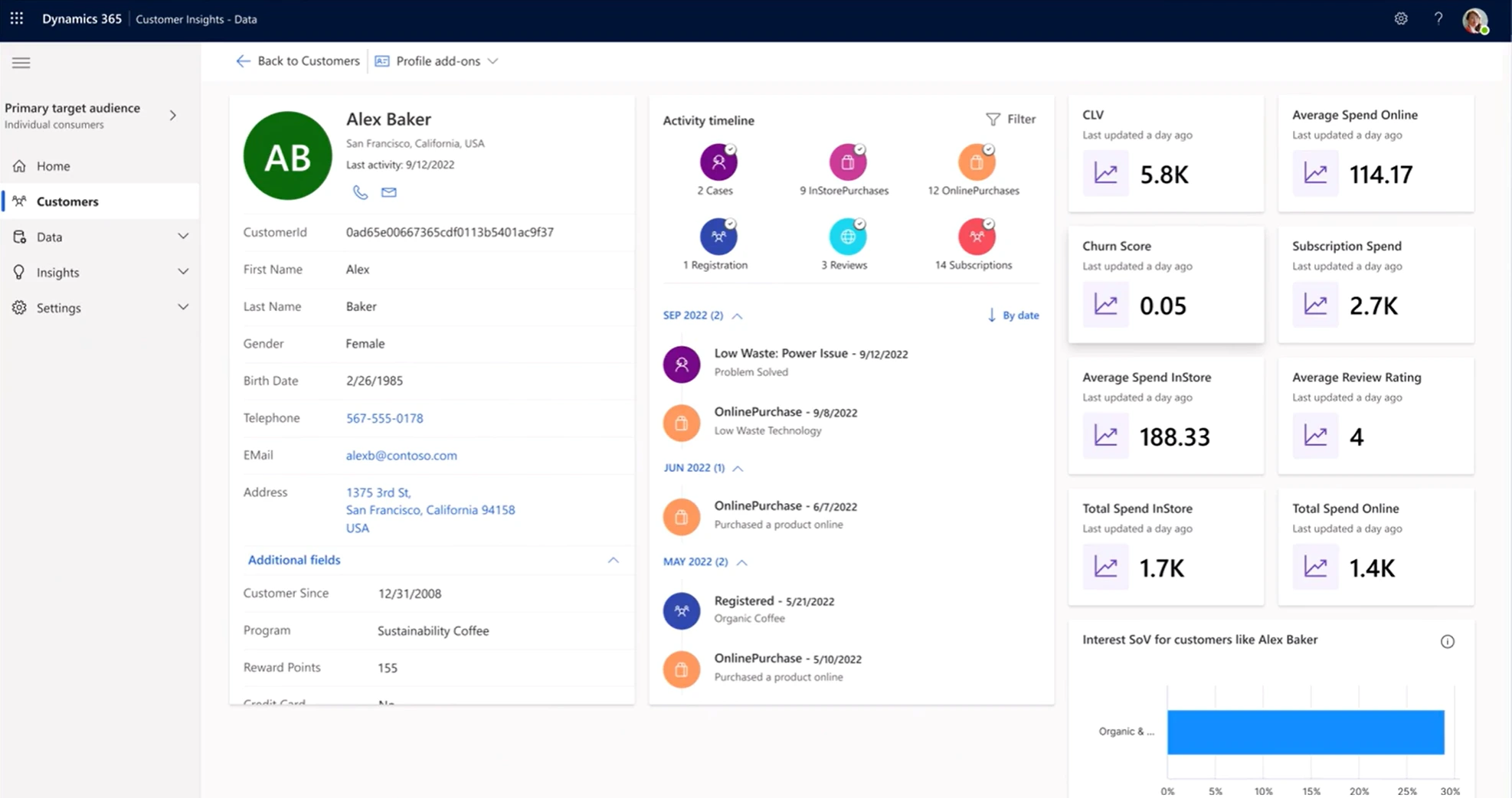

HubSpot CRM
Pipedrive
Zoho CRM
Microsoft Dynamics 365
HubSpot CRM
- G2: 4.2/5 based on 10,500+ reviews
- Capterra: 4.3/5 based on 3,900+ reviews
- TrustRadius: 8.4/10 based on 1,600+ reviews
Users consistently praise the intuitive user interface and marketing integration: "Finally, a CRM that our team actually wants to use daily." However, some note pricing concerns: "Feature costs add up quickly as you scale."
Pipedrive
- G2: 4.3/5 based on 1,700+ reviews
- Capterra: 4.5/5 based on 2,800+ reviews
- TrustRadius: 8.0/10 based on 400+ reviews
Users appreciate the visual approach and simplicity: "Our sales team was productive within days, not weeks." Some desire more features: "Great for sales pipeline but lacks marketing capabilities."
Zoho CRM
- G2: 4.2/5 based on 2,400+ reviews
- Capterra: 4.3/5 based on 6,200+ reviews
- TrustRadius: 8.4/10 based on 900+ reviews
Users value the customization and pricing: "Incredible feature set for the price point." Others note complexity: "Powerful but requires time to configure properly."
Microsoft Dynamics 365
- G2: 3.8/5 based on 1,400+ reviews
- Capterra: 4.4/5 based on 5,100+ reviews
- TrustRadius: 7.9/10 based on 700+ reviews
Users appreciate the Microsoft integration: "Seamless workflow with our existing Office tools." However, complexity is a common concern: "Powerful platform but requires significant implementation expertise."
How we verify: Ratings pulled from G2, Capterra, TrustRadius on September 2025. Quotes shortened for clarity
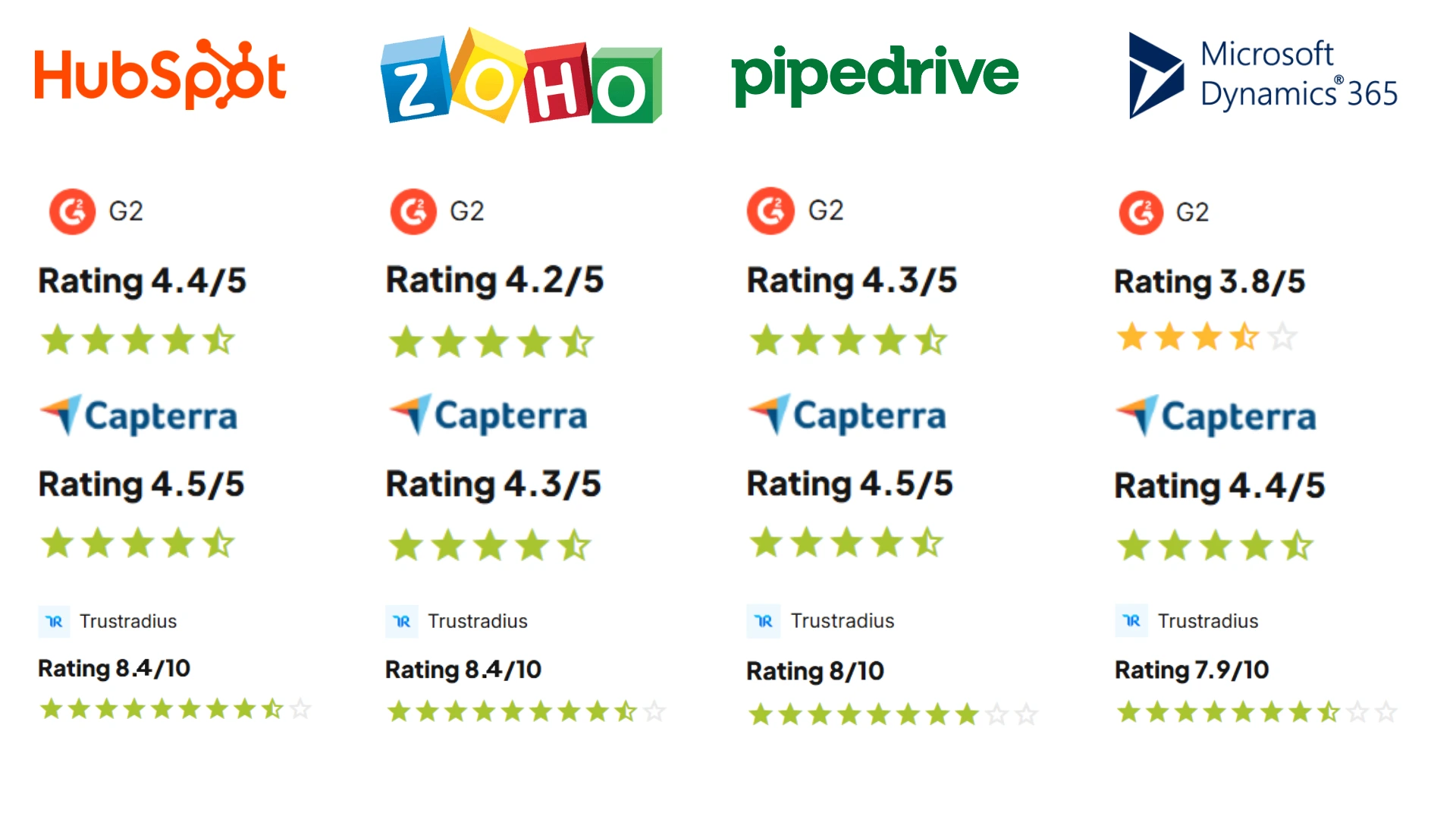
Process Documentation Importance Before evaluating any platform change, document your current customer relationship management processes, pain points, and success metrics. Understanding what works and what doesn't helps determine whether you need a new platform or better optimization of your existing system.
User Adoption Planning The best customer relationship management platform is the one your team actually uses consistently. Focus on customer experience, training requirements, and change management rather than just feature comparisons when making platform decisions.
Total Cost of Ownership Considerations Evaluate implementation costs, ongoing training, data migration, integration requirements, and potential productivity loss during transitions. Sometimes optimizing your current system delivers better ROI than switching platforms entirely.
Scalability Design Principles Choose platforms and processes that can grow with your business. Consider future user needs, data volume growth, automation requirements, and integration complexity when making long-term customer relationship management decisions.
Salesmate offers strong automation features with user-friendly design, particularly effective for teams wanting Pipedrive's simplicity with more comprehensive workflow automation capabilities.
Freshsales provides excellent customer service integration at competitive pricing, making it attractive for businesses prioritizing unified customer experience across sales and support teams.
Monday.com CRM delivers visual project management methodology applied to customer relationships, working well for teams already familiar with Monday's collaborative workspace approach.
For more detailed platform comparisons, see our Pipedrive vs Salesmate analysis which explores user-friendly alternatives in depth.
Evaluating CRM alternatives isn't just about finding a replacement for what you have. The most successful organizations step back and ask fundamental questions: Are our current challenges really platform limitations, or are they implementation, training, or process issues that optimization could solve?
Many businesses assume they need a complete platform change when what they actually need is better configuration of their existing system, improved user training, or streamlined workflows. Conversely, some organizations try to force-fit inadequate platforms when a strategic switch would dramatically improve their sales effectiveness and team productivity.
The decision between optimizing your current CRM or switching to an alternative requires honest assessment of your processes, realistic evaluation of implementation costs, and clear understanding of your long-term business objectives. Here's what this evaluation should include:
Current State Analysis: Document exactly how your team uses your CRM today, where adoption breaks down, and which processes create friction rather than efficiency.
Root Cause Identification: Determine whether your challenges stem from platform limitations, implementation gaps, training issues, or fundamental misalignment between your business model and chosen platform.
Future Requirements Planning: Consider how your sales processes, team size, and customer relationship management needs will evolve over the next 2-3 years.
Total Impact Assessment: Evaluate not just software costs, but implementation time, training requirements, productivity loss during transitions, and ongoing support needs.
Whether you're frustrated with your current platform, exploring alternatives, or simply want to ensure you're maximizing your CRM investment, the decision deserves expert guidance. The wrong choice costs more than money - it impacts team productivity, customer relationships, and business growth for years.
Capital S Consulting specializes in helping organizations navigate exactly these decisions. We've seen companies transform their sales effectiveness by optimizing their existing systems, and we've guided others through successful transitions to platforms that better fit their needs. Most importantly, we help you avoid the costly mistakes that come from making reactive decisions without strategic evaluation.
Every situation is different. Your business model, team dynamics, current processes, and growth trajectory all influence what approach will deliver the best results. Rather than guessing or making decisions based on feature comparisons alone, get expert guidance that considers your complete picture.
The right CRM strategy can accelerate your growth. The wrong one can set you back for years.
Contact Capital S Consulting to discuss your specific situation and ensure you're making the decision that best supports your business objectives.



